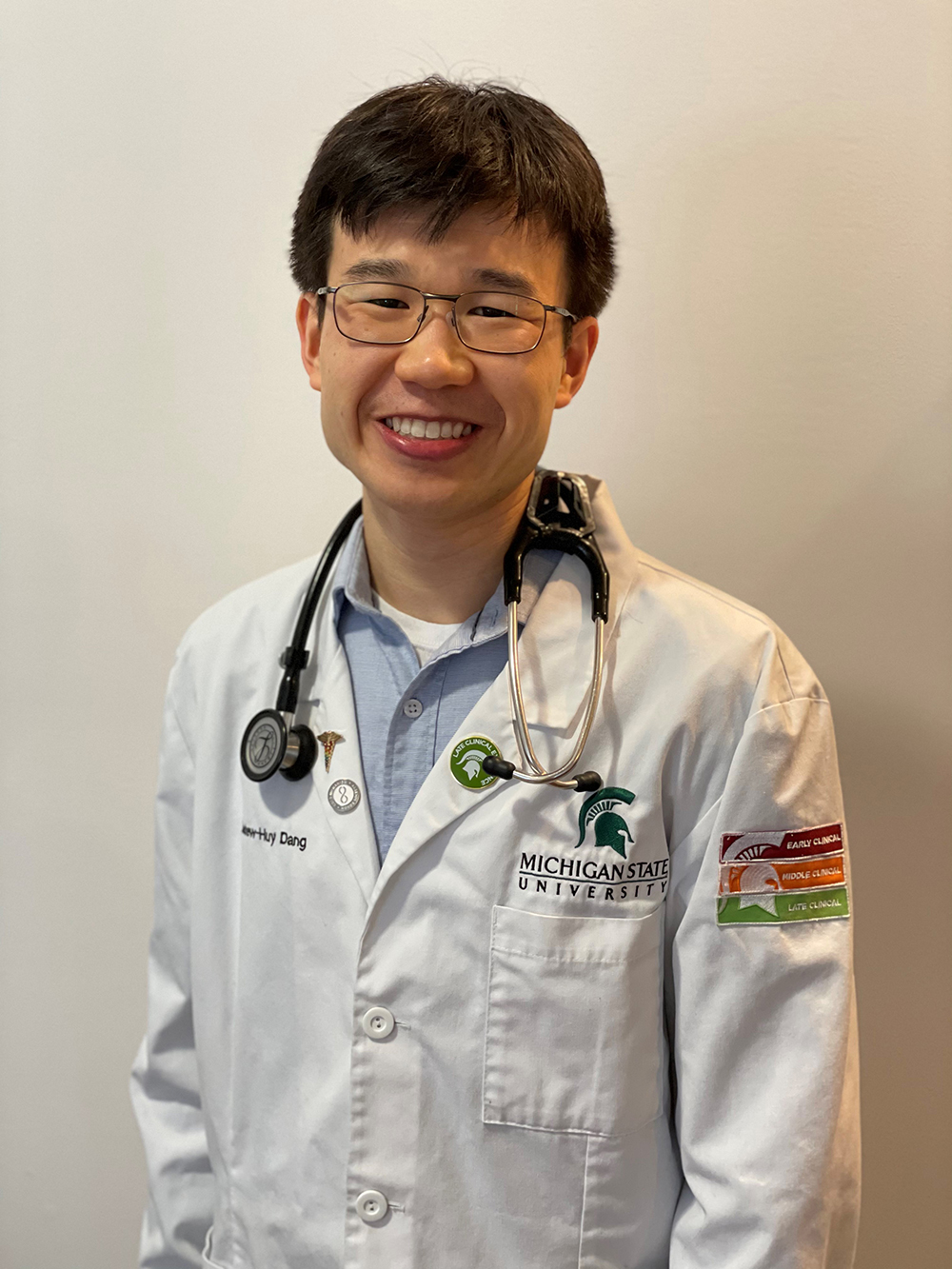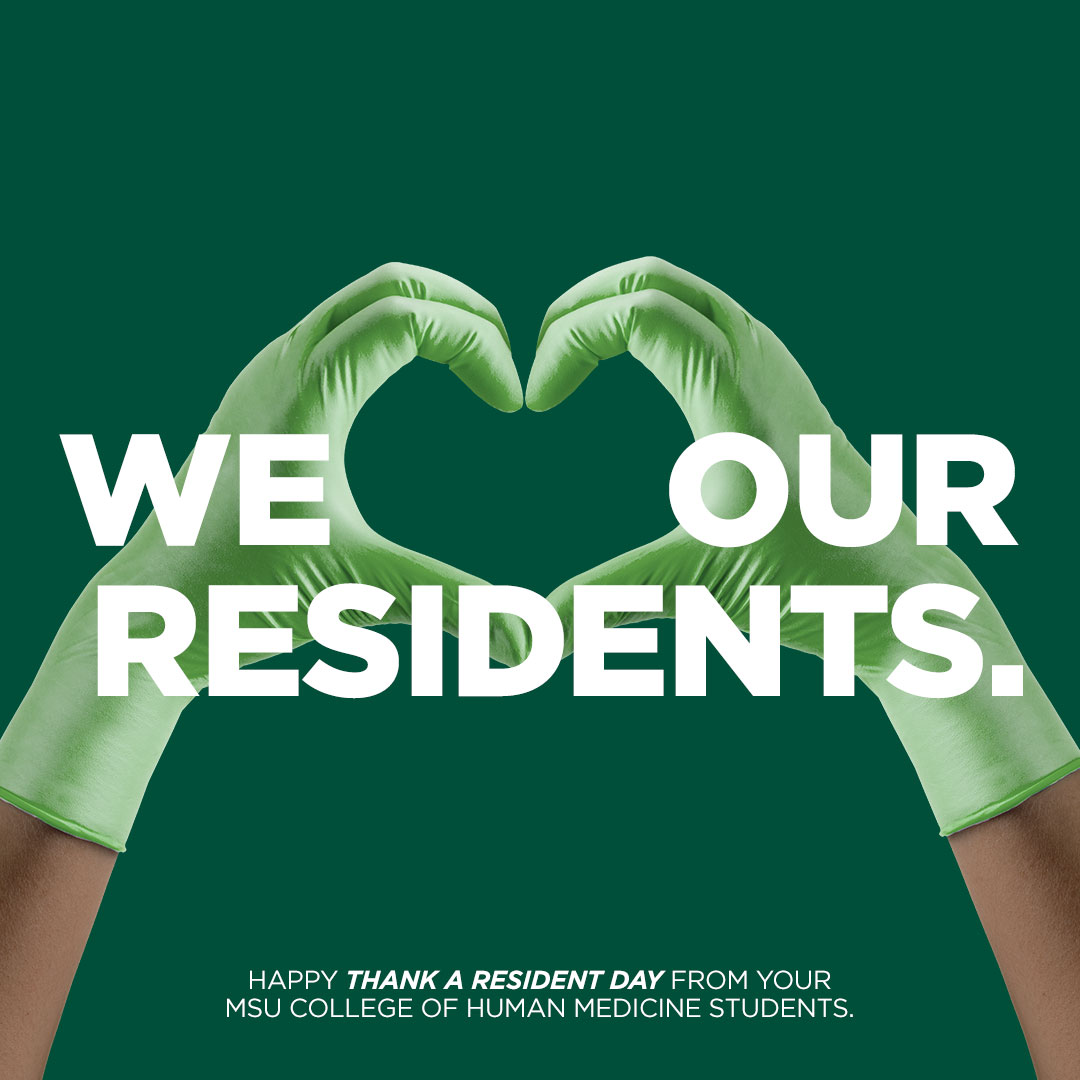Students Show Appreciation on "Thank a Resident Day"
March 18, 2021
 Fourth-year medical student Andrew-Huy Dang had just finished a long day of rotations at Sparrow Hospital when a resident physician approached him in a hallway.
Fourth-year medical student Andrew-Huy Dang had just finished a long day of rotations at Sparrow Hospital when a resident physician approached him in a hallway.“Hey, I have this patient we’re going to put a central line in,” he recalled the resident saying. “Would you like to help me?”
Long day or not, Dang didn’t hesitate. “Sure, I would,” he answered.
Thus, the resident talked Dang through suturing around the central line – one more learning experience among countless others taught to College of Human Medicine students by often overworked but ever-helpful residents.
For their patience and willingness to help train the next generation of physicians, resident physicians received some 160 thank you cards from College of Human Medicine students on Feb. 26, designated nationally as Thank a Resident Day.
As the “house staff” of hospitals, residents are extremely busy but still find time to teach medical students. Workdays can be long and hectic, leaving little time for a simple “thank you,” so, in 2018, the Gold Humanism Honor Society, which advocates compassion and excellence in healthcare, created the annual Thank a Resident Day.
 “This was a great opportunity to show appreciation,” Dang said. “I felt like this year was much different. It was much needed, especially because of COVID. I thought it was important to thank these people who invested so much in our future. They’ve been there every step of the way in our medical education.”
“This was a great opportunity to show appreciation,” Dang said. “I felt like this year was much different. It was much needed, especially because of COVID. I thought it was important to thank these people who invested so much in our future. They’ve been there every step of the way in our medical education.”As members of the local Gold Humanism Honor Society chapter, he and classmate Emmanuella Joseph organized this year’s event. They contacted the clerkship directors at each of the college’s seven campuses and had a virtual “thank you” card designed to send residents along with Starbucks gift cards.
Next year, both will enter the next phase of their education as resident physicians, allowing them to return the favor.
“I think residents work hard,” said Joseph, who is completing a surgery rotation at Mercy Health Saint Mary’s. “They sacrifice a lot of their own personal time to help us.”
The residents who taught her “show leadership skills in how they talk and teach others,” she said. “I want to be a resident who demonstrates those same characteristics. We don’t enter medicine for the thank yous. We do it to help make a difference in people’s lives.”
Still, she added, “it’s nice to know you’re appreciated.”

